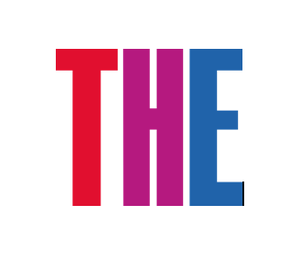
Times Higher Education
Times Higher Education
- 33 minutes 58 secondsCampus interview: Mark Thompson, professor of digital economy at the University of Exeter
For this episode of the Times Higher Education podcast, we talk with an academic, practitioner and policy commentator who uses phrases such as “burning platform” to describe the state of universities’ digital landscape.
Mark Thompson is a professor of digital economy in the research group Initiative for the Digital Economy (Index) at the University of Exeter, and his work focuses on the complexity and velocity of the digital economy. A former UK government policy adviser, he is recognised as one of the architects of digital service redesign of the UK public sector.
In this interview, conducted at Digital Universities UK at Exeter, Thompson shares his concern that the sector is drifting away from its true north of research, teaching and impact (he uses Jeff Bezos idea of “day one”), citing statistics that less than 40 per cent of university staff are academics. He suggests reasons for this and talks about the need for leadership at institutional and government level as well as the prisoner’s dilemma of whole-sector transformation.
25 April 2024, 12:01 am - 47 minutes 54 secondsCampus: human connection and the student experience
What difference does human connection make to student success? Does it matter if students come to in-person lectures? And what if students turn to AI for help with academic tasks rather than asking libraries or someone in student support?
This episode of the podcast takes on these questions, ones that have driven headlines on Times Higher Education, to examine the topics of student attendance in lectures and whether students’ use of AI might be making them lonelier. We talk to two Australian academics who both touch on questions of human connection in their work.
Jan Slapeta is a professor of veterinary and molecular parasitology and associate head of research in the Faculty of Science at the University of Sydney. He first talked to THE in 2022 when his tweet of a photo of an empty lecture hall touched a nerve in the Twitter-verse. Here, he explains why he is feeling optimistic about in-person teaching in 2024. His insightsare insightful and heartening as are his tips for new teachers.
Joseph Crawford is a senior lecturer in management in the Tasmanian School of Business at the University of Tasmania. His paper, co-authored with Kelly-Ann Allen and Bianca Pani, both from Monash University, and Michael Cowling, from Central Queensland University, “When artificial intelligence substitutes humans in higher education: the cost of loneliness, student success, and retention”, was published last month in Studies in Higher Education. Our conversation ranged from what belonging and loneliness actually are to what happens when students turn to AI over real-life relationships.
11 April 2024, 12:01 am - 47 minutes 44 secondsCampus: what is open access?
In this episode of the Times Higher Education podcast, we talk to two experts – one in the US and one in the UK – about open access, the global movement that aims to make research outputs available online immediately and without charge or restrictions.
Heather Joseph has been an advocate for knowledge sharing and the open access movement since its earliest days. Based in Washington DC, she has been executive director of the Scholarly Publishing and Academic Resources Coalition (SPARC) since 2005, and is known for her policy work, leadership and international consultancy for organisations such as Unesco, the World Health Organisation and the World Bank. In 2021, she won the Miles Conrad Award, the National Information Standards Organization’s recognition of lifetime achievement in the information community, and her lecture as the recipient is a detailed history of the movement, its goals and strategies.
Steven Vidovic is the head of open research and publication practice at the University of Southampton in the UK. A palaeontologist with a passion for scholarly communication and knowledge exchange for public benefit, he is also chair of the Directory of Open Access Journals advisory board and Southampton’s institutional lead for the UK Reproducibility Network, and he is a member of Jisc’s transitional agreement oversight group.
28 March 2024, 12:01 am - 22 minutes 19 secondsInternational Women's Day Campus interview: Sian Beilock, president, Dartmouth
In this episode we discuss a rare creature: the female higher education leader.
Indeed, according to the American Council on Education’s most recent American College President Study, women remain outnumbered by men in the college presidency by a ratio of 2:1, with about 33 per cent of presidencies held by women.
Women in higher education were also more likely to work a part-time or reduced schedule or postpone a job search or promotion to care for minor dependents
We’d be hard pressed to find a better person to speak with about female leadership in higher education than Sian Block, an award-winning cognitive scientist and an expert on performing under pressure. She is also the 19th president of Dartmouth, and the first woman elected to the position in the institution’s 250-year history.
Sian speaks about navigating failure and dealing with anxiety on the job. She also gives some very helpful advice on how to turn imposter syndrome into something positive and shares her personal experience of female leadership, a journey that began with working in the provost office at the University of Chicago before serving as president of Barnard College at Columbia University and then moving to Dartmouth in 2023.
4 March 2024, 12:01 am - 24 minutes 13 secondsCampus bonus episode: an interview with Kathryn Sikkink of Harvard Kennedy School
In this bonus episode of the THE podcast, we continue the theme of universities’ role in fostering civic engagement with an interview with renowned human rights scholar and award-winning author Kathryn Sikkink.
Sikkink is the Ryan Family professor of human rights policy at Harvard Kennedy School, as well as faculty co-chair of the Harvard Votes Challenge, a non-partisan initiative that promotes student voter registration and turnout. Her books include The Hidden Face of Rights: Toward a Politics of Responsibilities (Yale University Press, 2020) and The Justice Cascade: How Human Rights Prosecutions Are Changing World Politics (W. W. Norton & Company, 2011), which won the Robert F. Kennedy Center Book Award.
In this discussion, we talk about the origins of Sikkink’s interest in human rights, what support students need to navigate the mechanisms of voting, and why showing up on election day is not just a right, it’s a responsibility.
1 March 2024, 9:32 am - 1 hour 6 minutesCampus: how to turn university students into engaged citizens
In 2024, more people than ever in history will be going to the polls to vote in elections in
more than 80 countries, including the US and the UK. As pillars of democratic societies, universities and colleges are integral to the exercise of choosing our public
representatives. In today’s episode we speak to two political scientists about voting habits, including among Generation Z, and how universities can encourage their students to engage in the democratic process.
Elizabeth Matto is director of the Eagleton Institute of Politics, a research professor and teacher-scholar-practitioner of democratic education and director of the Center for Youth Political Participation at Rutgers University. She talks to us about what civic engagement is, how campuses can support their students to vote and engage as citizens, and universities’ mission to prepare young people to be part of a democratic society. She also gives tips for facilitating political discussion in the classroom and creating an environment that allows students to be brave, respectful and open with their views. Her new book, To Keep the Republic: Thinking, Talking, and Acting Like a Democratic Citizen (Rutgers University Press, 2024) is published in April.Michael Bruter is a professor of political science and European politics in the department of government at the London School of Economics and Political Science and director of the Electoral Psychology Observatory. Michael has published seven books, including his latest book with Sarah Harrison, Inside the Mind of a Voter (Princeton University Press, 2020), and multiple articles in the fields of elections, political behaviour, political psychology, identities, public opinion, extreme right politics and social science research methods. He told us what their research has shown about first-time voters, including debunking misconceptions such as that young people don’t care about elections, and why voting is like bungee jumping.
29 February 2024, 12:01 am - 24 minutes 56 secondsCampus interview: James Purnell, president and vice-chancellor of the University of the Arts London
James Purnell has been the president and vice-chancellor of the University of the Arts London since 2021. He joined UAL after a career that included key positions at the BBC (as director of strategy and digital, and director of audio and education) and as a research fellow on the Institute of Public Policy Research’s media project. He has served as special adviser on the knowledge economy to UK prime minister Tony Blair and as an MP and cabinet minister.
This wide-ranging Campus interview draws on Purnell’s wealth of knowledge of public policy, the digital landscape and the creative industries. The conversation covers universities’ social purpose, the potential of online to widen access to a creative education, what AI could mean for the arts, and how government policy could be shaped to better support students. He also talks about how urban development can foster creativity, and how his experience as a film producer shaped his view of the arts’ potential to make a difference in the world.
15 February 2024, 12:01 am - 1 hour 3 minutesCampus: Microcredentials are knocking. Will higher education answer?
From employers to policy makers, universities and their students, everyone agrees that alternative credentials are a good thing for the economy and for expanding access to higher education. But it’s one thing to think it’s a good idea and another to make it happen. The truth is demand for microcredentials remains low among students, the business plans are patchy and higher education providers haven’t fully embraced the new models.
In this episode we hear from an institution who has managed to get alternative credentialing right in a big way. The University of Edinburgh has been building Moocs (massive open online courses) and microcredentials for over 10 years. It currently offers 80 online master’s courses and 100 Moocs and microcredentials, reaching 4.7 million learners around the world. Melissa Highton, assistant principal of online and open learning at the university, is here to tell us about their strategy behind developing Moocs, how they remain relevant to millions of learners and the secret behind their commercial success.
Michael D. Smith, a professor of information technology and public policy at Heinz College and Tepper School Of Business at Carnegie Mellon University, speaks with us about his recent book The Abundant University. Having observed disruption in the television and music industries, he urges universities to leverage technology to reach more students and secure their futures.
Read more from Melissa Highton on Campus "A look back over 10 years of Moocs"
25 January 2024, 12:01 am - 37 minutes 37 secondsCampus interview: Mike Ibba from Chapman University on mentorship and the future of US science
January is a month of change and new beginnings and our guest for this episode speaks about his experience of both, in terms of his career, the relationship between the arts and sciences and the state of US science.
Microbiologist Mike Ibba joins us to discuss Chapman University's decision to move its philosophy department into the Schmid College of Science and Technology and why he wants training the next generation of scientists to be his lasting legacy. Ibba has been the dean of the college since 2020 after spending nearly 20 years at The Ohio State university. He also shares his experience of making the transition from a large, publicly-funded R1 institution to a small, private R2 institution.
Thanks to Chapman University for sponsoring this episode.
5 January 2024, 12:01 am - 41 minutes 39 secondsCampus: How to do public engagement
In the lead-up to the Times Higher Education Awards 2023, for this episode, we talk to two winners from last year, both of whom share their advice, insights and best practice for engaging the public. King’s College London and health science company Zoe won the award for Outstanding Marketing/Communications Team for the Covid Symptom Study app. Tanya Wood, talks about the agile methods the team used to communicate the science in real time in a way that saw millions sign up for the app and impacted UK Covid policy. Hugo Bowles joins us to explain the Dickens Code, an ongoing project in which he and principal investigator Claire Wood, of the University of Leicester, enlisted the global public to unravel the mysteries of Charles Dickens shorthand.
4 December 2023, 12:01 am - 33 minutes 12 secondsCampus interview: Laura Allen from Trinity University on connecting student well-being to the natural world
Can spending time in natural environments support students’ well-being? The is the question that an interdisciplinary team of researchers and educators at Trinity University in San Antonio Texas wanted to answer. Despite research showing that spending time outside does support students’ mental health, the team struggled to get students to actually spend time outdoors. So they developed an innovative course combing theory, research and practice to help students improve their mental wellness and better understand how it’s connected with the natural environment.
On today’s episode of the podcast, Laura Allen, co-developer of the course and a professor in the department of education at Trinity University joins us to talk about what inspired her and colleagues to develop this programme, how it combines forest bathing and undergraduate research, and, most importantly, if it’s helped their students.
Thanks to one of our newest Campus+ members Trinity University for sponsoring this episode.
Watch the video recording of this episode on Campus.
27 November 2023, 12:00 am - More Episodes? Get the App
Your feedback is valuable to us. Should you encounter any bugs, glitches, lack of functionality or other problems, please email us on [email protected] or join Moon.FM Telegram Group where you can talk directly to the dev team who are happy to answer any queries.
 Education Bookcast
Education Bookcast
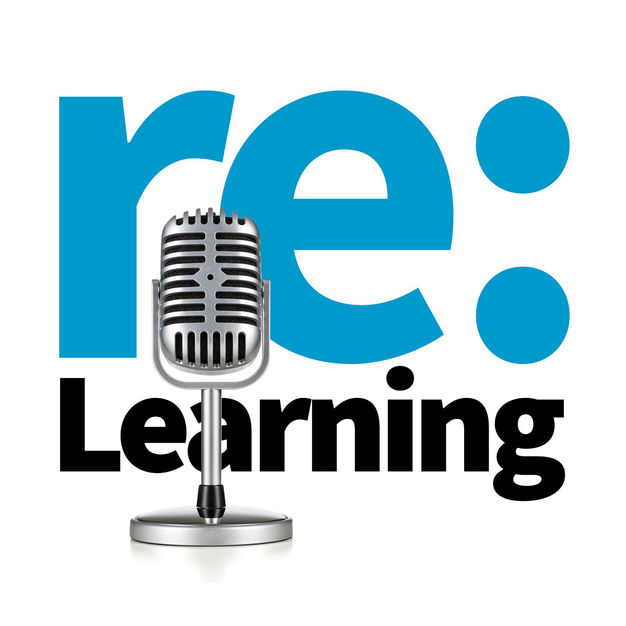 ReLearning Podcast
ReLearning Podcast
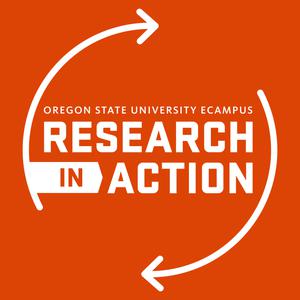 Research in Action | A podcast for faculty & higher education professionals on research design, methods, productivity & more
Research in Action | A podcast for faculty & higher education professionals on research design, methods, productivity & more
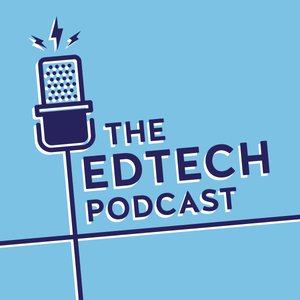 The Edtech Podcast
The Edtech Podcast
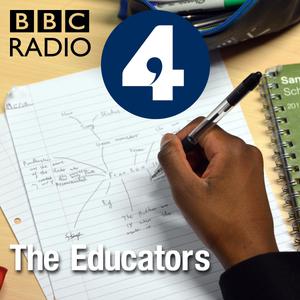 The Educators
The Educators
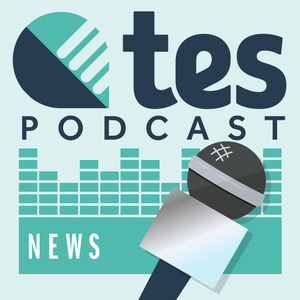 Tes News
Tes News